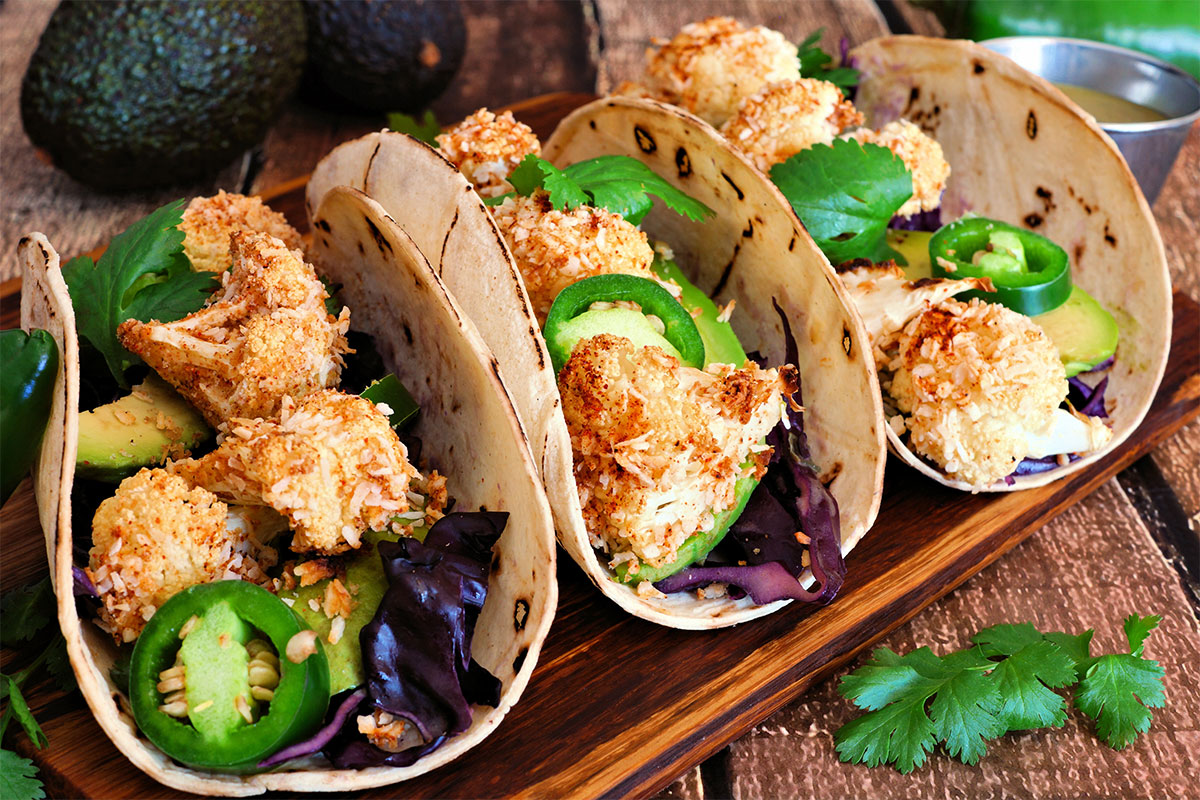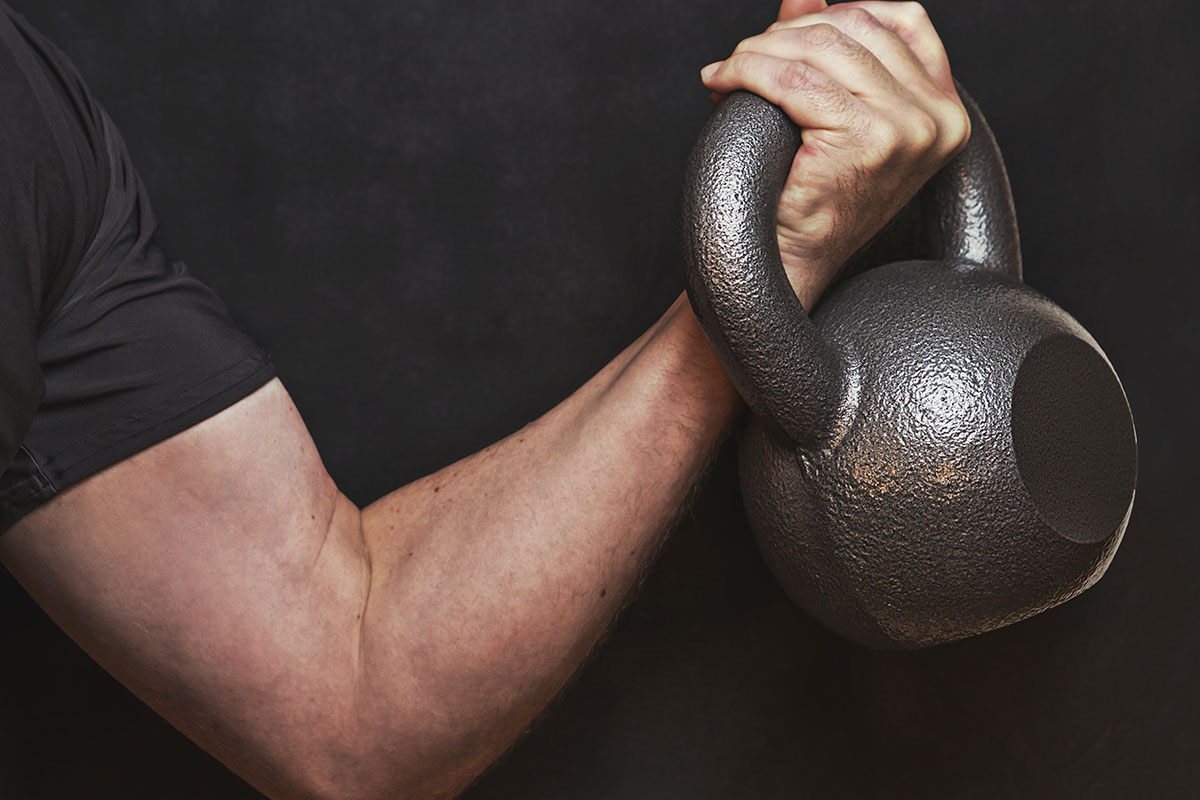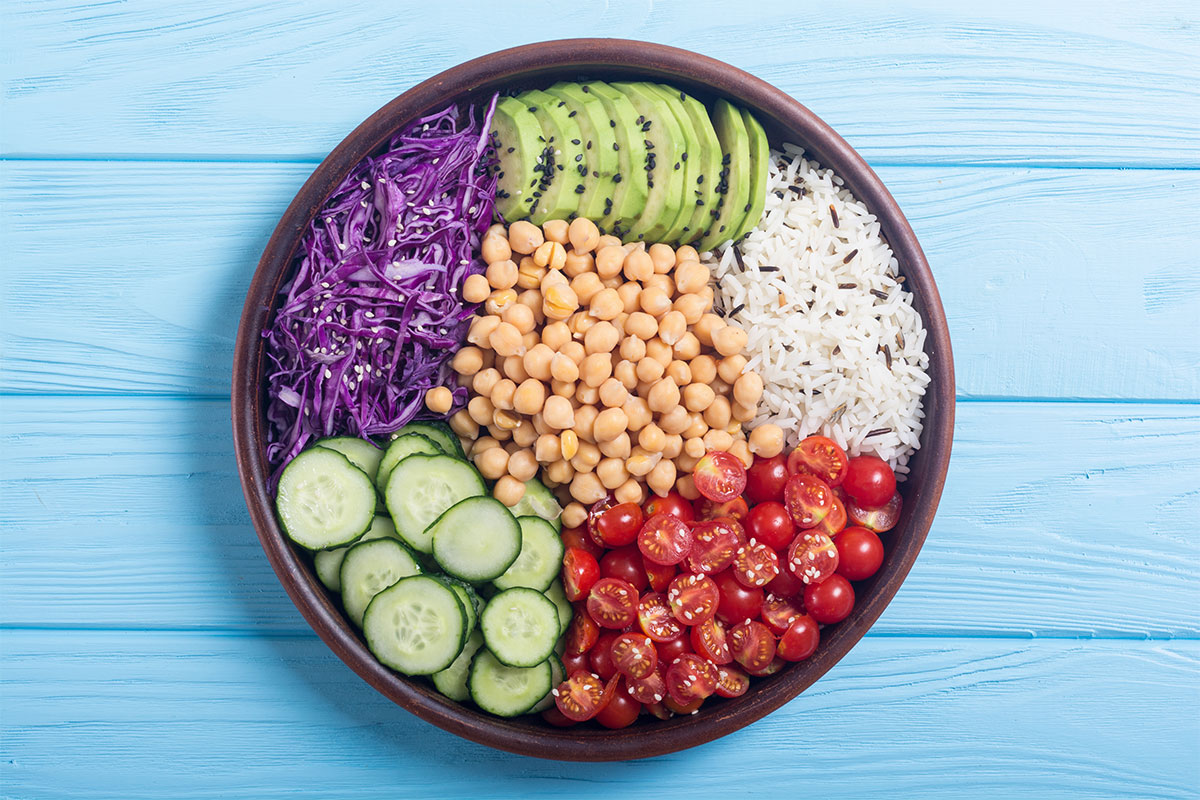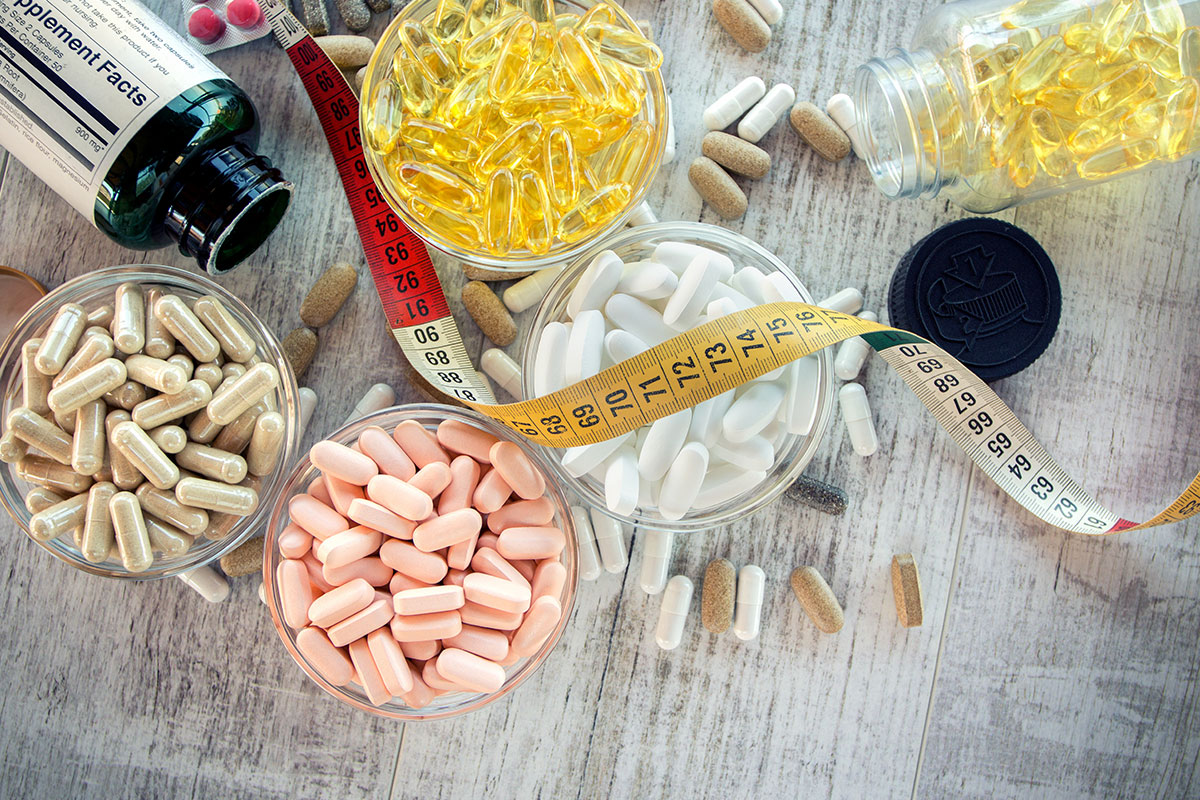Why am I Gaining Weight Despite Diet and Exercise? │ QA
If you’re careful with your nutrition, working out weekly, and still experiencing problems with your weight, take a moment to read this QA.


Cauliflower seems to be all the rage. Cauliflower pizza crust, cauliflower rice, cauliflower mashed potatoes – is it really healthier than the alternatives? (i.e. regular dough, white/brown rice, mashed potatoes) I’ve noticed that sometimes it seems like these cauliflower products are very high in cholesterol, seems counterintuitive. I need an expert’s advice!

It IS a craze! Cauliflower is a highly nutritious and under consumed cruciferous vegetable. Incorporating it in forms other than whole raw and steamed may reduce its benefit a smidge but at least more people are eating it. Its mild flavor and bland appearance make the versatile cauliflower suitable for replacing white starches for restricted carbohydrate, Paleo or gluten-free eating. Yes, I know purple, orange and green varieties exist. Here’s a rundown of the various popular ways cauliflower is offered (at present) compared to the original alternatives:
Riced cauliflower vs. rice – As a side dish, minced cauliflower is lower in calories and carbohydrate than traditional white rice. It offers more fiber, calcium, potassium, vitamin C, and vitamin K while enriched medium grain white rice provides more iron, magnesium, zinc, and folate. *
Mashed cauliflower vs. mashed potato – With a higher water content than potato, cauliflower contains fewer carbohydrates and calories than the equal volume of spuds. For a moist food like mashed potato, the substitution works, particularly once salt, garlic, butter, sour cream or chives are added for flavor. Cauliflower provides more fiber, calcium, folate, vitamin C, and vitamin K while potatoes provide more potassium, zinc, and magnesium:*
100 g boiled, drained cauliflower 100 g peeled, boiled potato
Cauliflower pizza crust vs. traditional dough – To hold the consistency together without wheat gluten, oil, egg and xanthan gum are added to cauliflower with starches like tapioca and brown rice flour. The oil content is responsible for higher fat, while egg is why the saturated fat content is often higher than the original dough version. Of course, switching the crust can only partially offset the pizza sauce, cheese, and toppings which are usually not healthy!
Sources:
*Nutrient values from USDA National Nutrient Database for Standard Reference Legacy Release, April 2018 database. Findings were used along with RDN’s professional judgment.
– Debbie J., MS, RD
This article should not replace any exercise program or restrictions, any dietary supplements or restrictions, or any other medical recommendations from your primary care physician. Before starting any exercise program or diet, make sure it is approved by your doctor.
Some questions have been edited for length and/or clarity.
 Have a nutrition question? Our registered dietitian is ready to help!
Have a nutrition question? Our registered dietitian is ready to help!
Email nutrition@lafitness.com or submit your question below and it may be featured in an upcoming article!
If you’re careful with your nutrition, working out weekly, and still experiencing problems with your weight, take a moment to read this QA.
Blood sugar control isn’t easy. These are Debbie’s top recommendations for how to address weight control with Type II Diabetes.
Does Intermittent Fasting give you enough time to pack the day's protein? Our registered dietitian helps clear up the confusion!


I wanted to know what’s the best way to boost metabolism and lose weight for a man once you’re over 40?
– Jermaine H.

Fighting midlife weight gain is certainly a challenge! Hormone levels and lifestyle are common causes for the metabolism and weight change from prior decades. Targeting these two areas are likely to bring about the most benefit. Thus, it is wise to visit with your physician for a checkup. Amping up your physical activity during the day (walking, cleaning, washing your own car, dancing) outside of exercise is recommended to help lose weight in middle age.
At the gym and in the kitchen, the goal is to preserve muscle mass (and therefore metabolic function) and promote a calorie deficit. ProResults® Trainer, Morgan Connors, advises strength training and cardio workouts. Nutritionally, you should eat the bulk of your calories earlier in the day, include protein at each meal, limit added sugars and alcohol, and get enough fiber and water. Consuming green tea and chili peppers temporarily boost metabolic rate… a little. Other foods purported to raise metabolism include fish, egg whites, coffee, milk, yogurt, coconut oil, lentils, red beans, cinnamon, garlic, broccoli, and berries.
Sources:
– Debbie J., MS, RD
This article should not replace any exercise program or restrictions, any dietary supplements or restrictions, or any other medical recommendations from your primary care physician. Before starting any exercise program or diet, make sure it is approved by your doctor.
Some questions have been edited for length and/or clarity.
 Have a nutrition question? Our registered dietitian is ready to help!
Have a nutrition question? Our registered dietitian is ready to help!
Email nutrition@lafitness.com or submit your question below and it may be featured in an upcoming article!
If you’re careful with your nutrition, working out weekly, and still experiencing problems with your weight, take a moment to read this QA.
Blood sugar control isn’t easy. These are Debbie’s top recommendations for how to address weight control with Type II Diabetes.
Does Intermittent Fasting give you enough time to pack the day's protein? Our registered dietitian helps clear up the confusion!


Hello, I am vegetarian and do not eat meat or eggs but do eat dairy products. Can you let me know the following?
Thanks for your help.
– Sunil J.

Here are your three-fold answers:
1. A well-balanced lacto-vegetarian diet can be sufficient to promote muscle growth and strength when paired with an appropriate workout plan. The bigger you are and the more you burn the more nutrition you need – but also the more you can eat! A sample 2,800 calorie day might look like the following. Also see our recent suggestions for meatless meals.
Nutrient analysis using www.FitDay.com by a Registered Dietitian Nutritionist = 127 gm Protein (16% calories). Findings were used along with RDN’s professional judgment.
2. Before strength training (assuming last meal was more than 3 hours prior) a small snack incorporating a carbohydrate with some protein, but little fat can fuel your workout and help prevent muscle protein breakdown. One example is rice or oat square cereal with non-fat milk and strawberries. Another would be noodles and chunky marinara with a soy meatball. After working out, replenish energy stores and promote muscle repair and rebuilding with a similar recovery snack within a half hour. Graham crackers with peanut butter and banana slices is an option.
3. Protein powder aids in providing variety and convenience to meals or snacks on the go. When mixed with fluid as a beverage, protein powder is more readily absorbed than a solid protein you’d need to chew and break down. A balance of soy, casein, and whey can offer a more sustained delivery of protein.
– Debbie J., MS, RD
This article should not replace any exercise program or restrictions, any dietary supplements or restrictions, or any other medical recommendations from your primary care physician. Before starting any exercise program or diet, make sure it is approved by your doctor.
Some questions have been edited for length and/or clarity.
 Have a nutrition question? Our registered dietitian is ready to help!
Have a nutrition question? Our registered dietitian is ready to help!
Email nutrition@lafitness.com or submit your question below and it may be featured in an upcoming article!
If you’re careful with your nutrition, working out weekly, and still experiencing problems with your weight, take a moment to read this QA.
Blood sugar control isn’t easy. These are Debbie’s top recommendations for how to address weight control with Type II Diabetes.
Does Intermittent Fasting give you enough time to pack the day's protein? Our registered dietitian helps clear up the confusion!


Do you recommend a weight loss supplement?
– Brian N.

Hi Brian, I’m so glad you asked my opinion! Powder supplements of actual food components (such as of protein and fibers) can be quite useful in an energy-restricted diet since reduced total food volume can limit intake of certain nutrients. A general multivitamin/mineral supplement providing 100% DRI may also be suitable. These may not directly promote weight loss in themselves but can help the body maintain a healthy status while losing weight and indirectly help by curbing appetite.
Pill supplements of other compounds are nearly the last thing I recommend for weight loss, usually after other interventions have failed. There are many downsides to using popular supplements such as fat burners, appetite suppressants, and metabolism boosters. Due to personal biochemistry, their effects on physiology (positive or negative) may be as great as that of prescription weight loss drugs. The efficacy of a supplement should be weighed against its safety. According to the National Institutes of Health*, the compounds with “possible modest effect” on weight, fat mass or waist circumference include African mango, caffeine, green coffee bean extract, green tea, carnitine, and white kidney bean. Reported side effects include various GI disturbances, headaches, difficulty sleeping, urinary tract infections, increased blood pressure, and liver damage.
* Source: https://ods.od.nih.gov/factsheets/WeightLoss-HealthProfessional/ Accessed 3.11.2019
– Debbie J., MS, RD
This article should not replace any exercise program or restrictions, any dietary supplements or restrictions, or any other medical recommendations from your primary care physician. Before starting any exercise program or diet, make sure it is approved by your doctor.
Some questions have been edited for length and/or clarity.
 Have a nutrition question? Our registered dietitian is ready to help!
Have a nutrition question? Our registered dietitian is ready to help!
Email nutrition@lafitness.com or submit your question below and it may be featured in an upcoming article!
If you’re careful with your nutrition, working out weekly, and still experiencing problems with your weight, take a moment to read this QA.
Blood sugar control isn’t easy. These are Debbie’s top recommendations for how to address weight control with Type II Diabetes.
Does Intermittent Fasting give you enough time to pack the day's protein? Our registered dietitian helps clear up the confusion!


I saw this email address at LA Fitness and was hoping you could help me out with dieting which is my major downfall. I lift 3-4 times a week but am seeing no results due to my eating. I’m a very picky eater and can’t force myself to eat chicken every day. I need help!!! Please!!!
– Missy

Not knowing what you will eat, it’s difficult to provide guidance on suitable meals. Strictly speaking of protein sources – alternatives include pork tenderloin, turkey breast, fish, 7% ground beef, extra lean ground turkey, sirloin or tenderloin beef, and shellfish in nearly an equal ounce to ounce replacement for chicken. Non-flesh proteins include eggs & egg whites, low fat plain Greek yogurt, low-fat cottage cheese, legumes/beans, and lite tofu. Amounts of these equaling 3 oz. chicken vary due to volume measurements. Nuts, nut butters, and cheeses aren’t as diet-friendly since they’re higher in calories with a significant amount of fat for the same amount of protein.
If personal preference (or a strict dietary, philosophical or religious restriction) limits the variety of foods you consume then you need to experiment with textures, cooking methods and flavor combinations to increase palatable options. Some people that dislike whole peas can eat split pea soup with ham or a pea-hummus. Many vegetables can be replaced by purees or baked vegetable crisps. Did you know that temperature brings out the aroma of foods? By serving foods that are less desirable cold, the perceived flavor is muted. This works particularly well for meats and grains. If a hot chicken alfredo with fettucine, broccoli, and peppers as an entrée is overwhelming try it as cold chicken pasta salad side dish to other preferred foods.
Hopefully, with a little experimentation and substitution, you can find suitable foods for your weight loss goals. For long term success, enjoying what you eat is better than just tolerating it – you’re more likely to make permanent lifestyle changes.
– Debbie J., MS, RD
This article should not replace any exercise program or restrictions, any dietary supplements or restrictions, or any other medical recommendations from your primary care physician. Before starting any exercise program or diet, make sure it is approved by your doctor.
Some questions have been edited for length and/or clarity.
 Have a nutrition question? Our registered dietitian is ready to help!
Have a nutrition question? Our registered dietitian is ready to help!
Email nutrition@lafitness.com or submit your question below and it may be featured in an upcoming article!
If you’re careful with your nutrition, working out weekly, and still experiencing problems with your weight, take a moment to read this QA.
Blood sugar control isn’t easy. These are Debbie’s top recommendations for how to address weight control with Type II Diabetes.
Does Intermittent Fasting give you enough time to pack the day's protein? Our registered dietitian helps clear up the confusion!
Be the first to know about exclusive
content, deals and promotions